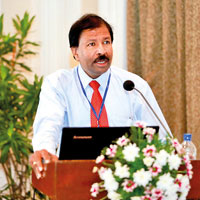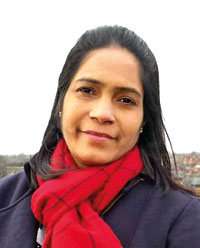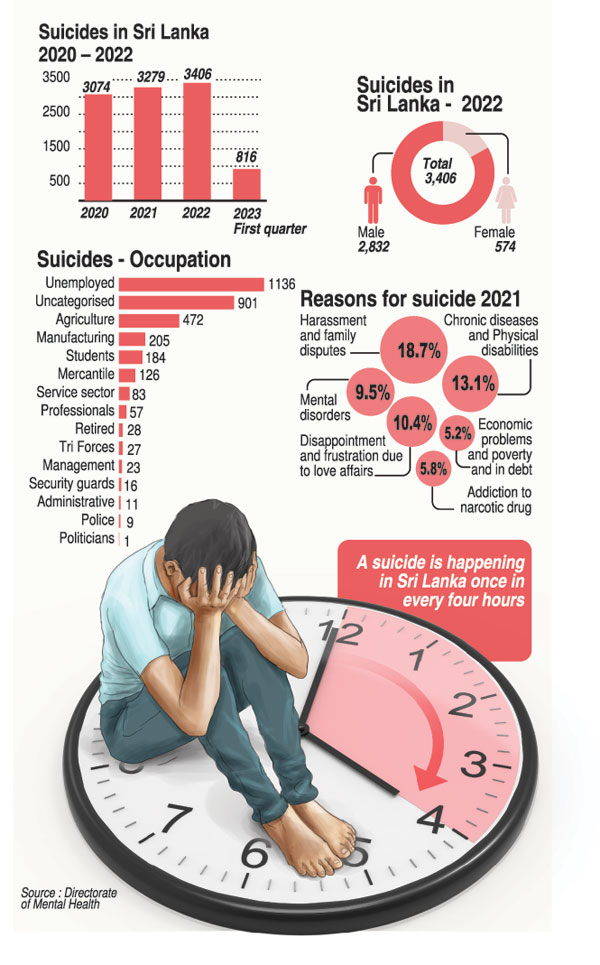News
Suicides are unpredictable, not unpreventable
View(s):By Renishka Fernando
The number of suicides has been fluctuating between 3,000 and 3,500 a year for the past 10 years, with an average of eight deaths or more every day.
In the first quarter of 2023, there were 816 deaths by suicide, according to Police. In 2021 and 2022, there were 3,279 and 3,074 suicides, respectively.

Dr Jayan Mendis
“Suicide is a cause of both psychological and psychiatric factors often associated with undiagnosed mental disorders and a lack of treatment,” noted Dr. Jayan Mendis, a senior lecturer in psychiatry at the Kotelawala Defence University and a consultant psychiatrist. Suicidal tendencies are worsened by economic, social, and personal issues like divorce, breakups, and death.
He said suicide is common among those with depression, psychiatric disorders like psychosis and schizophrenia, and elderly people with no support or emotional well-being.
“We always advise bringing in patients as soon as possible for early diagnosis and treatment, as this reduces risks,” Dr. Mendis said.
He also drew attention to the fact that those who have attempted suicide before are more prone to suicidal tendencies, thus requiring continuous treatment and follow-ups. Additionally, those who consume alcohol and use substances like cannabis and ‘ice’ are prone to suicide as well.
Individuals experiencing suicidal thoughts and tendencies talk more about wanting to end their lives—this could be in either a serious or humorous manner—and express a lot of guilt, shame, or regret. They also see themselves as a burden and often express feelings of emptiness and purposelessness.
“The unbearable emotional pain experienced by individuals with suicidal thoughts is perhaps the worst, as there is no way it can be shown, unlike physical pain,” noted Ammarah Ashraf, a licenced clinical psychologist and the head of counselling services at Shanthi Maargam.
There are call and text hotlines made available by the government and private groups to help those experiencing suicidal tendencies.
When an individual calls a hotline, the operator helps them navigate their negative feelings through conversation. “We talk to them normally and ask them questions to validate their feelings. Instead of consulting, we listen and befriend them,” said Dil Piyaratna, director of outreach at Sri Lanka Sumithrayo.
The suicidal protocol followed by SL Sumithrayo ensures that operators ask questions regarding the method of suicide, the planned date, and how long they have been feeling suicidal.
“The people who call don’t want to die; they feel hopeless and believe that there is no future. It is a combination of both hopelessness and helplessness,” remarked Ms. Piyaratna. The operators then ask whether a family member can be contacted, and callers normally consent, after which steps are taken to help them. SL Sumithrayo follows up on callers for a couple of weeks to check on their well-being.
There is a lack of knowledge about what family members and friends can do when loved ones are experiencing suicidal tendencies. “The best thing to do is to guide them to seek proper mental health guidance,” said Dr. Kanthi Hettigoda, a clinical psychologist and a senior lecturer at the Department of Psychology at the University of Peradeniya.

Dr Kanthi Hettigoda
She highlighted the importance of listening and validating the thoughts and feelings of those expressing suicidal thoughts. “It is important to make it clear to them that suicide is not a solution but rather a symptom of a valid problem they are experiencing.”
Dr. Hettigoda remarked that such individuals should also not be isolated. Attention should be paid even when they are not expressing these thoughts. She told the Sunday Times that aiding them in their daily activities and checking up on them would help them feel validated.
Ms. Ashraf noted some myths about suicide in Sri Lanka. Firstly, talking about suicide increases the chances of an individual acting on it. This is false, as vocalising these issues will help in finding a solution and seeking support.
Another myth is that people talking about suicide are attention seekers. People who die by suicide have told at least one person that they wanted to end their lives. It is important to be kind and sensitive.
An extremely harmful idea is that people who take their lives are selfish, weak, and cowards. Ms. Ashraf noted that it takes a lot of strength to make the decision to end your life. “Most of us are scared of the pain or what comes next, but those who die by suicide have significant emotional pain that leads them to this decision.”
Lastly, the myth that suicide is not preventable has had a significant adverse impact. Suicides are unpredictable, not unpreventable. If we are aware of what needs to be done, many lives can be saved, Ms. Ashraf said.
Dr. Hettigoda said it is important to raise awareness that suicidal thoughts are symptoms of mental health disorders like depression and anxiety. “When you are depressed, you don’t see the reality of the world.” She said suicidal thoughts only last a few minutes or days, and it is vital that the person is distracted during this period. The improvement of mental health literacy is vital.
She said the media have a role to play in suicide awareness and prevention. “Details about the methods of suicide give ideas to those experiencing such thoughts.” She also condemned media sensationalisation and called for responsibility and ethics in reporting.
The target of the Directorate of Mental Health, the national-level focal point responsible for the National Mental Health Programme, is to reduce suicide mortality by one-third by 2030. Compared with the 1990s, the suicide rate has vastly decreased.
The National Suicide Prevention Strategy and Action Plan were introduced under the Mental Health Policy to address suicide. There are six strategies highlighted: advocacy, evaluation of existing policies, provision of mental health services, promotion of psycho-social wellbeing, improving environments in institutes of learning, and establishment of an efficient surveillance system. 
Officials of the Directorate of Mental Health have been visiting districts to introduce the action plan.
Additionally, district mental health teams have been tasked with modelling their own plan based on the national action plan. This is to increase community involvement and help spread awareness about suicide prevention.
Meanwhile, psychological autopsies of adults by a team of mental health officers are being done in Monaragala, Batticaloa, and Kandy. If anyone is experiencing any suicidal thoughts or tendencies, they are referred to the medical officer of mental health, who then refers the individual to a counsellor. Once the danger has passed, family members are asked to check on them regularly.
The official said mental health services at the grassroots level are available, although they are pilot projects.
There are 47 centres attached to the MOH that offer mental wellness services. In addition, the Directorate of Mental Health also liaises with teachers, coaches, social workers, and counsellors through a programme called the Gatekeeper Programme for suicide prevention and public awareness.
If you or anyone you know is experiencing suicidal thoughts, please seek assistance. 1375 (Lanka Lifeline), 1333 (CCC Foundation), 1926 (National Mental Health Helpline), 0707 308 308 (SL Sumithrayo), 0767 520 620 (SL Sumithrayo WhatsApp), 0717 639 898 (Shanthi Maargam).
The best way to say that you found the home of your dreams is by finding it on Hitad.lk. We have listings for apartments for sale or rent in Sri Lanka, no matter what locale you're looking for! Whether you live in Colombo, Galle, Kandy, Matara, Jaffna and more - we've got them all!

